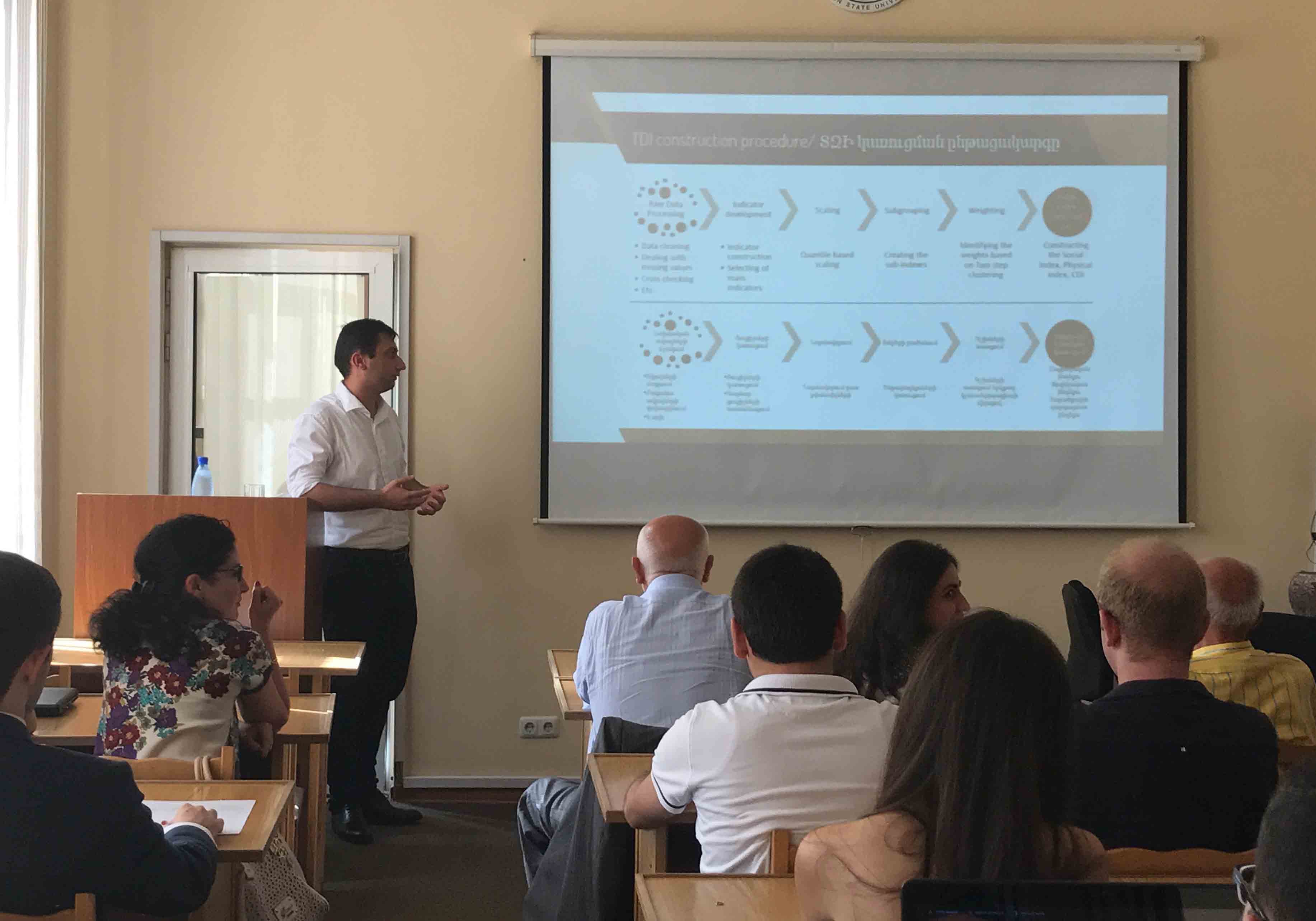PRESENTATION OF MAIN PROVISIONS OF DISSERTATIONS

On 13 November this year, a discussion on the dissertations of the faculty PhD students was held at the Scientific-Analytical Center of Constitutional Economics.
The dissertations were regarding to the development of methods and models of corruption assessment within the context of the constitutionalism, as well as the study of the balanced indicators system in the energy sector of Armenia. Each of the speakers presented the main provisions of their dissertation, the structural content of the work, and then a discussion was held in conjunction with the professorial staff of the faculty.
The first speaker underlined that the level of constitutionalism and corruption reality in the country is studied at the legal-political and economic systems in terms of public life and socio-economic systems. Within the framework of institutional and constitutional economics extensive discussions and research work were held aimed at revealing the causes of the constitutional deficit and corruption, and fighting to overcome the negative consequences of the latter.
The constitutional deficit or the low level of constitutionality are directly associated with the quality of management, as it is obvious from the definition of constitutionality deficit that the complex actions of the state apparatus serving the implementation of the provisions of the Constitution were not a sufficient condition to effectively implement those provisions in real life. The speaker mentioned that the level of constitutionalism and the level of efficiency of the state administration responsible for its quality in terms of economic development are actual issues, for which the academic circles represent numerous scientific-research works.
The purpose of the thesis is to examine the consequences of corruption reality in the context of constitutionality characteristics on the effectiveness of governance and public welfare.
The speaker also underlined that carrying out the research has been used linear and nonlinear regression, factor analysis, cluster analysis methodologies, and the necessary data were obtained from the World Bank, Transparency International Anti-Corruption Organization, UN Economic Forum and database and reports of the NSS of the RA.
The next dissertation was dedicated to the study of the Armenian energy sector, which is one of the vital factors and key drivers of the global economy.
The graduate noted that the limited and gradually decreasing number of natural resources, as well as the significant impact on energy production and consumption on the environment and climate change caused a strong need for the development and introduction of effective strategies and tools for strategic governance. One of such mechanisms is the development of an energy-based strategy based on a balanced indicator system.
The use of the mentioned system enables the present the strategy through a combination of several components (financial, customer relationships, internal business processes, education and development) and the causal link between them.
The lack of natural gas resources (oil, natural gas) puts in a major dependence the normal functioning of the entire energy system from the importing countries (the Russian Federation, the Islamic Republic of Iran), which creates serious threats to the country's energy and national security.
Consequently, the speaker underlined that for the elimination of existing problems, as well as excluding unwanted barriers, are required measures aimed at raising the efficiency of the RA energy system management.
The Dissertation aims to develop the RA energy sector strategy based on balanced indicator system as well as to build a model for each of the components of the model system, as a result of thorough study of the RA energy sector and balanced system of indicators.
It should be noted that the provisions and the results of the dissertation were discussed within the framework of the SYNERGY program implemented by the YSU and the Institute of Economic Education adjacent to the Carl von Ossietzky University of Oldenburg as well as under the "Erasmus+" program carrying out by the YSU and the Institute for Housing and Urban Development Studies adjacent to the Erasmus University of Rotterdam.


